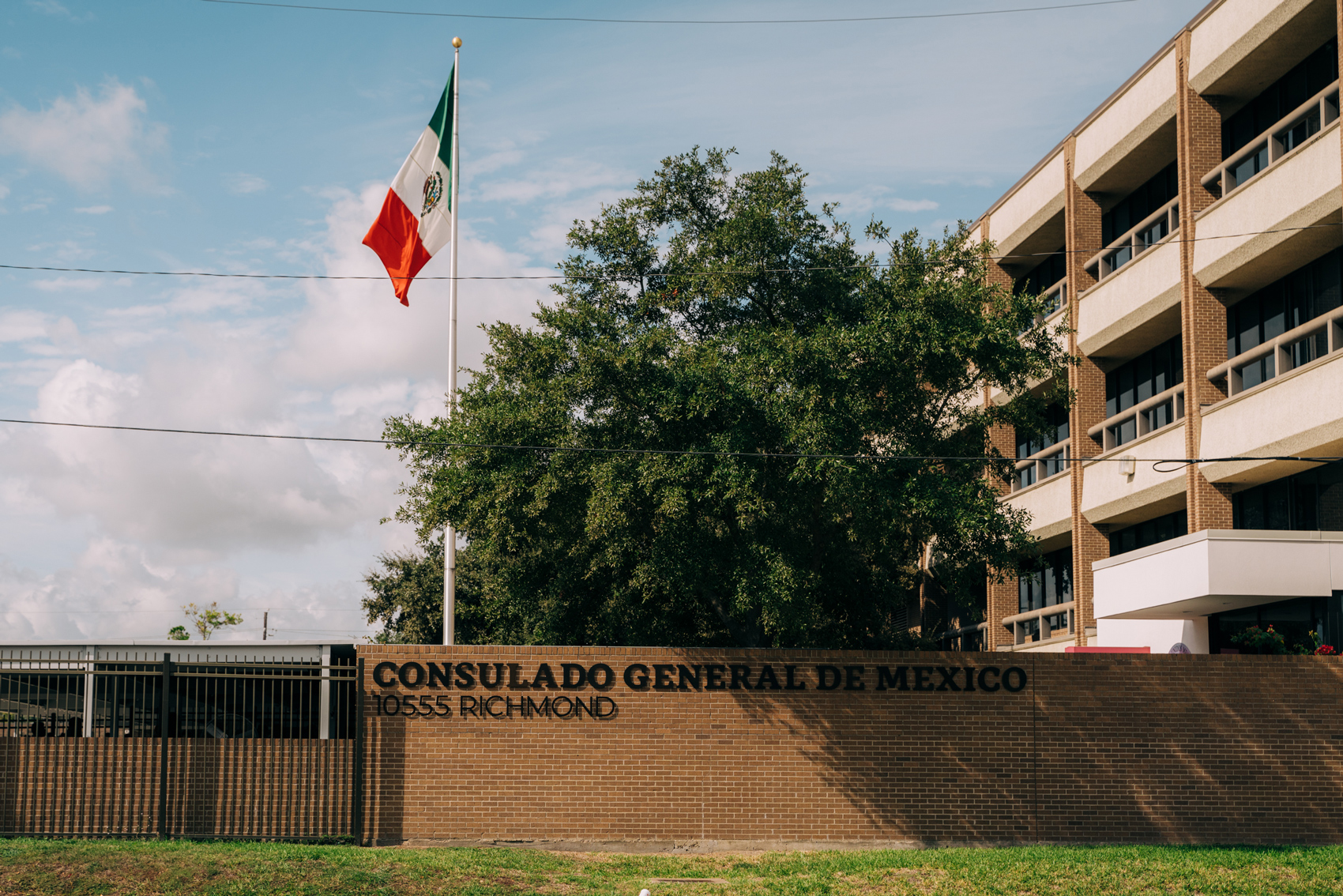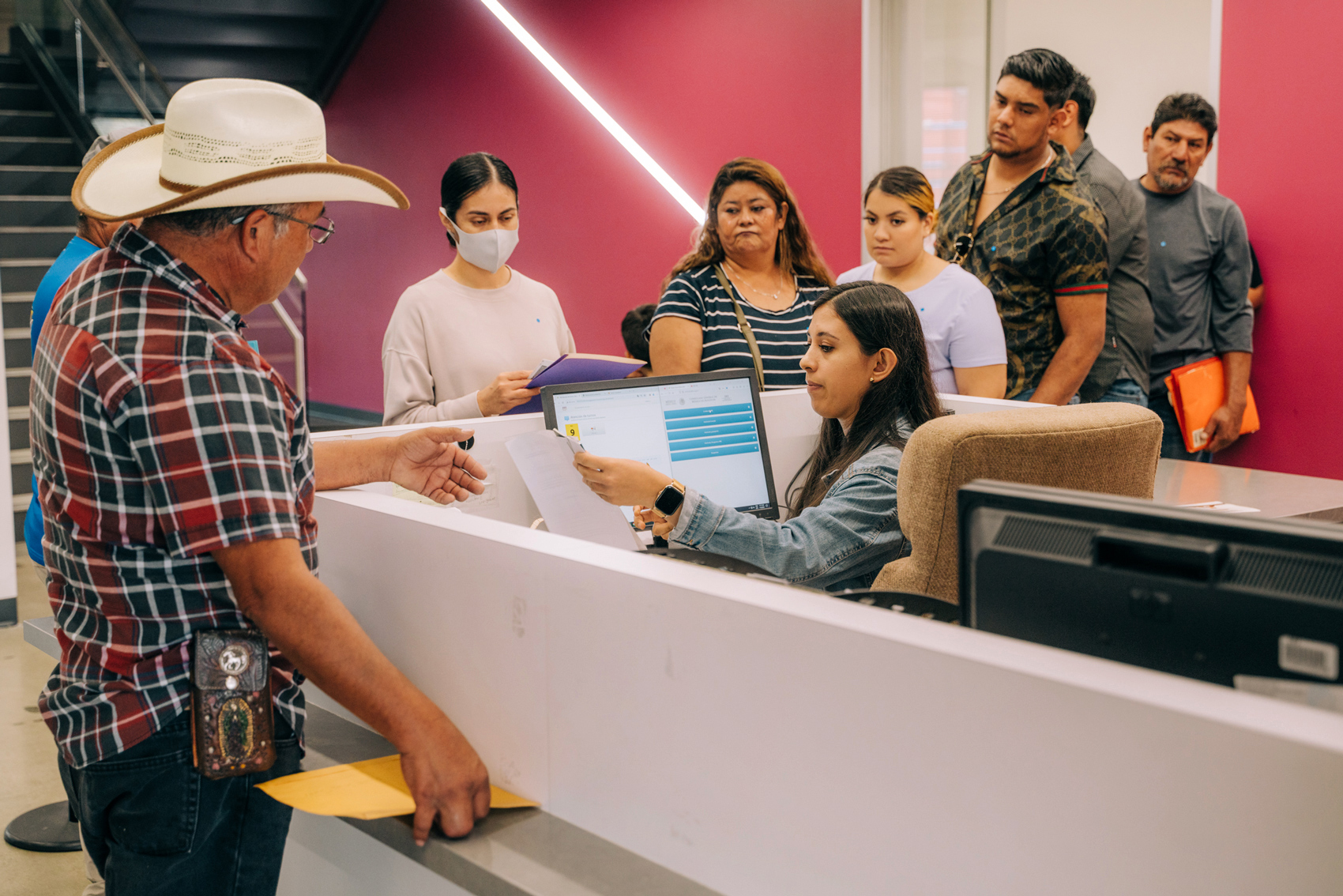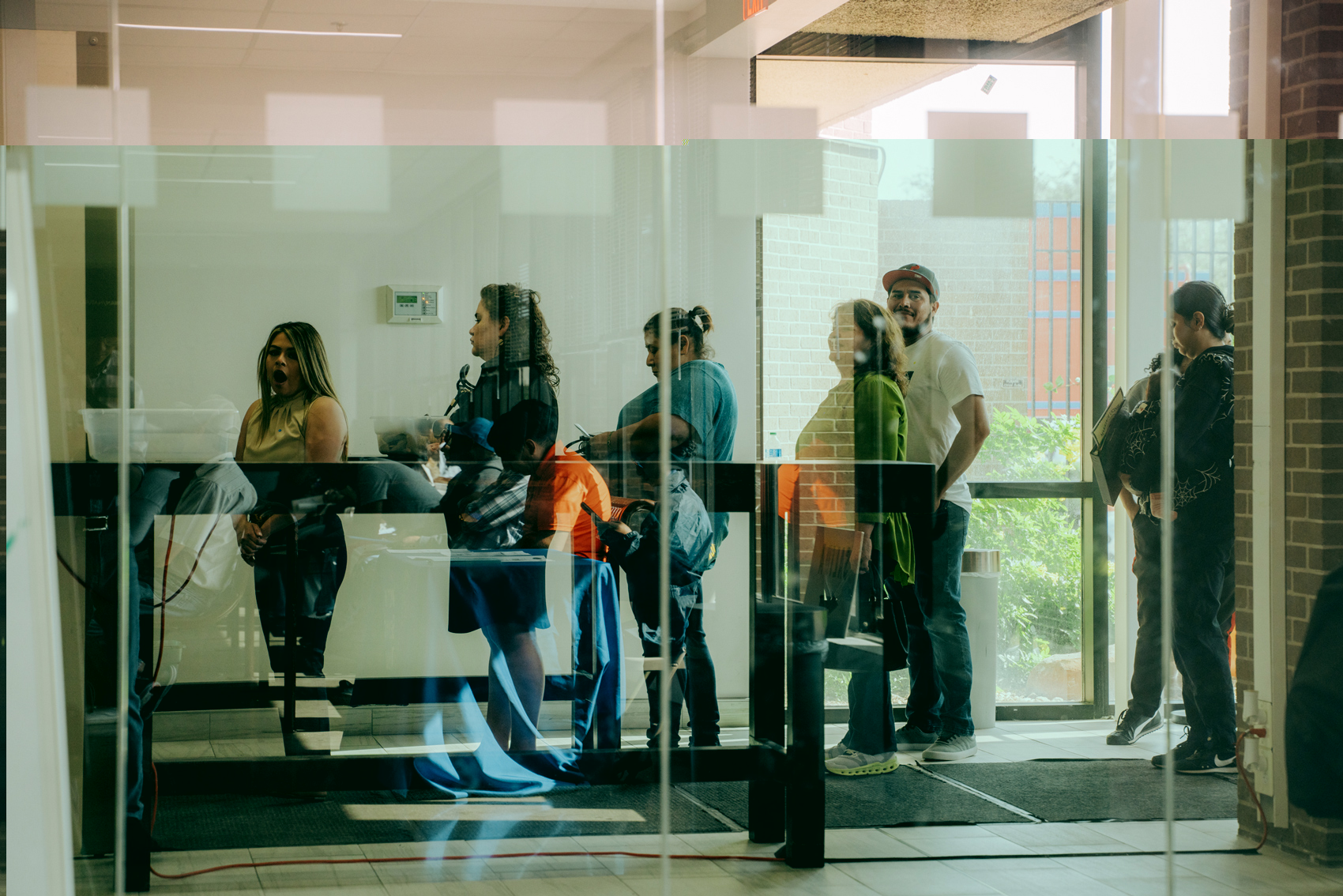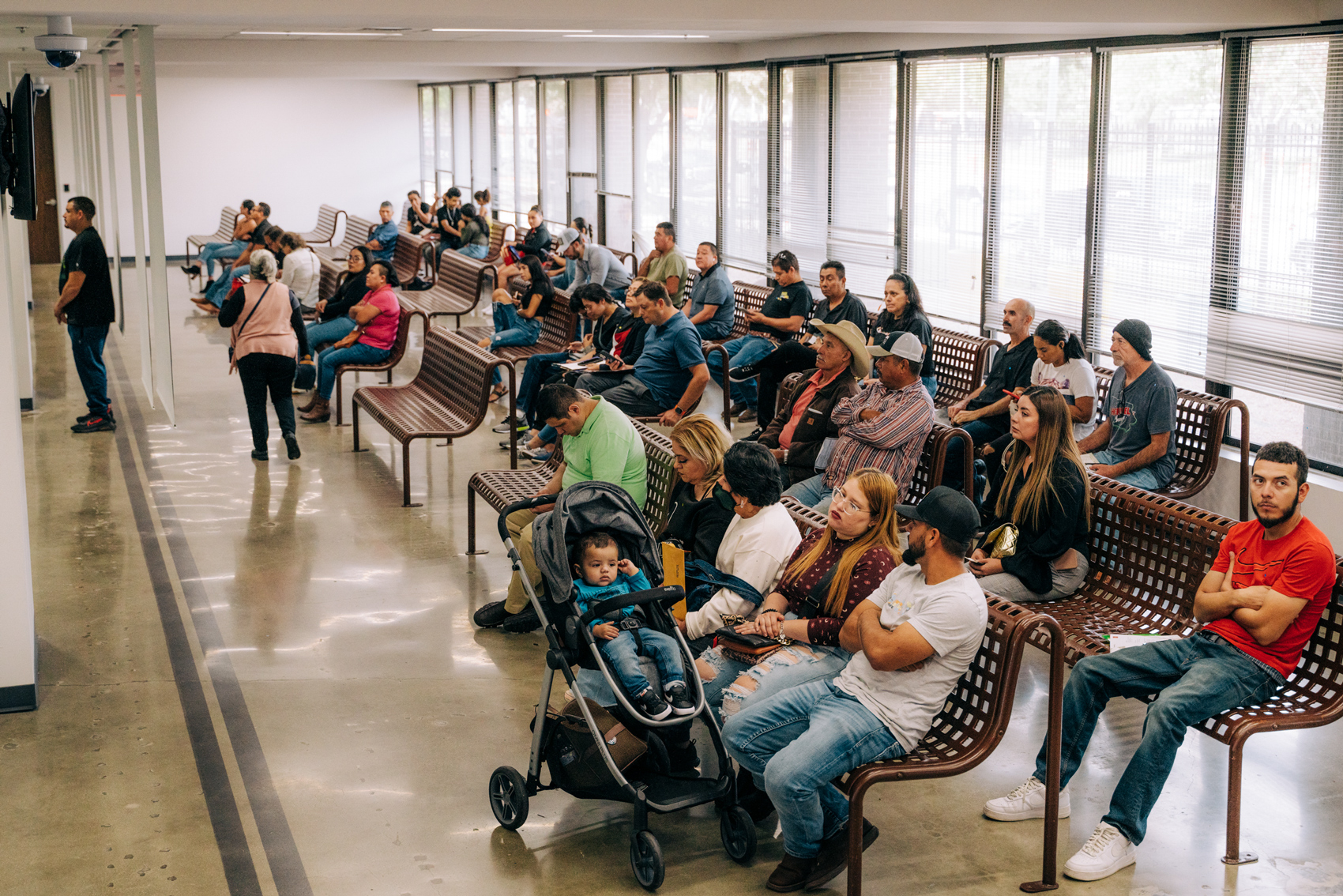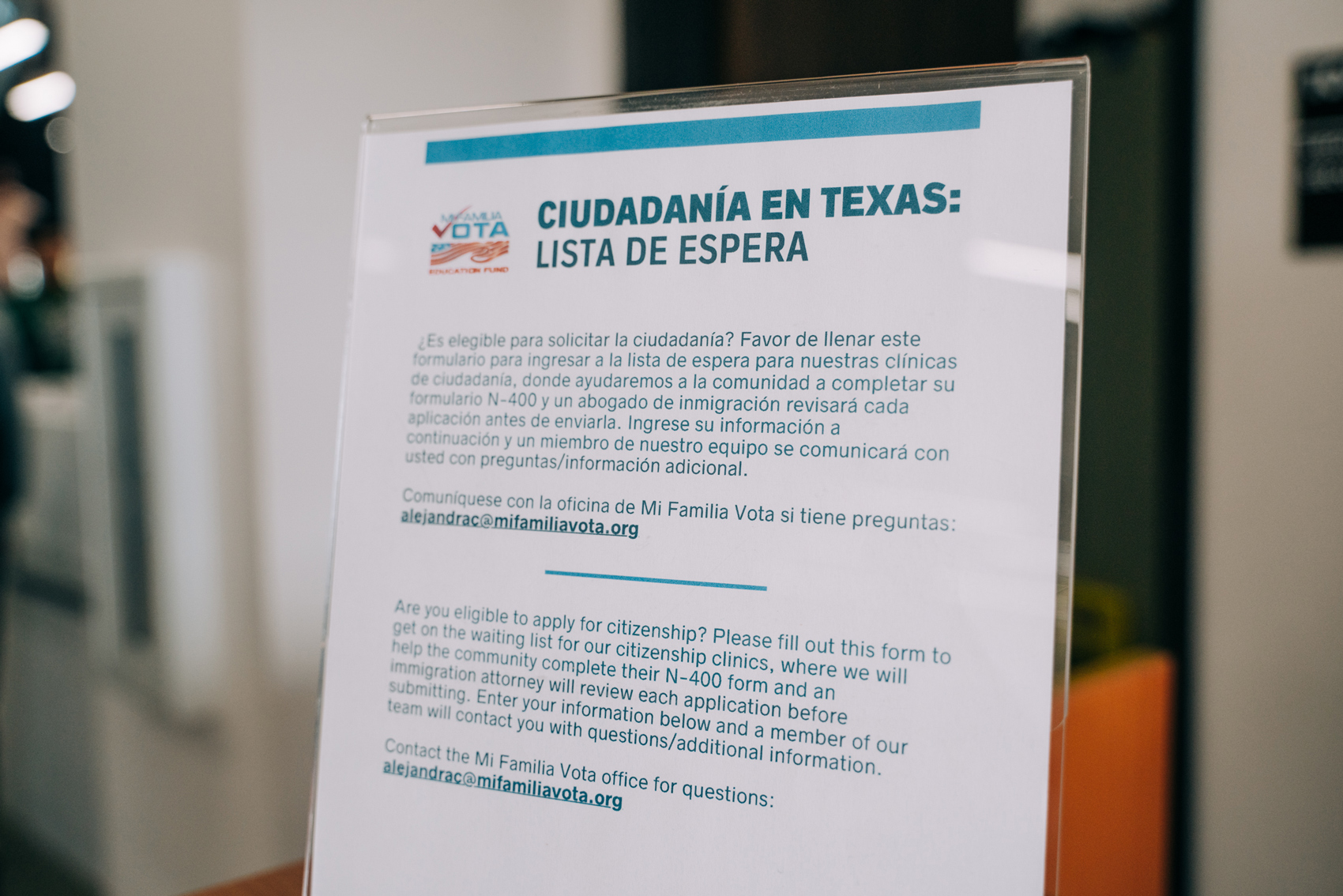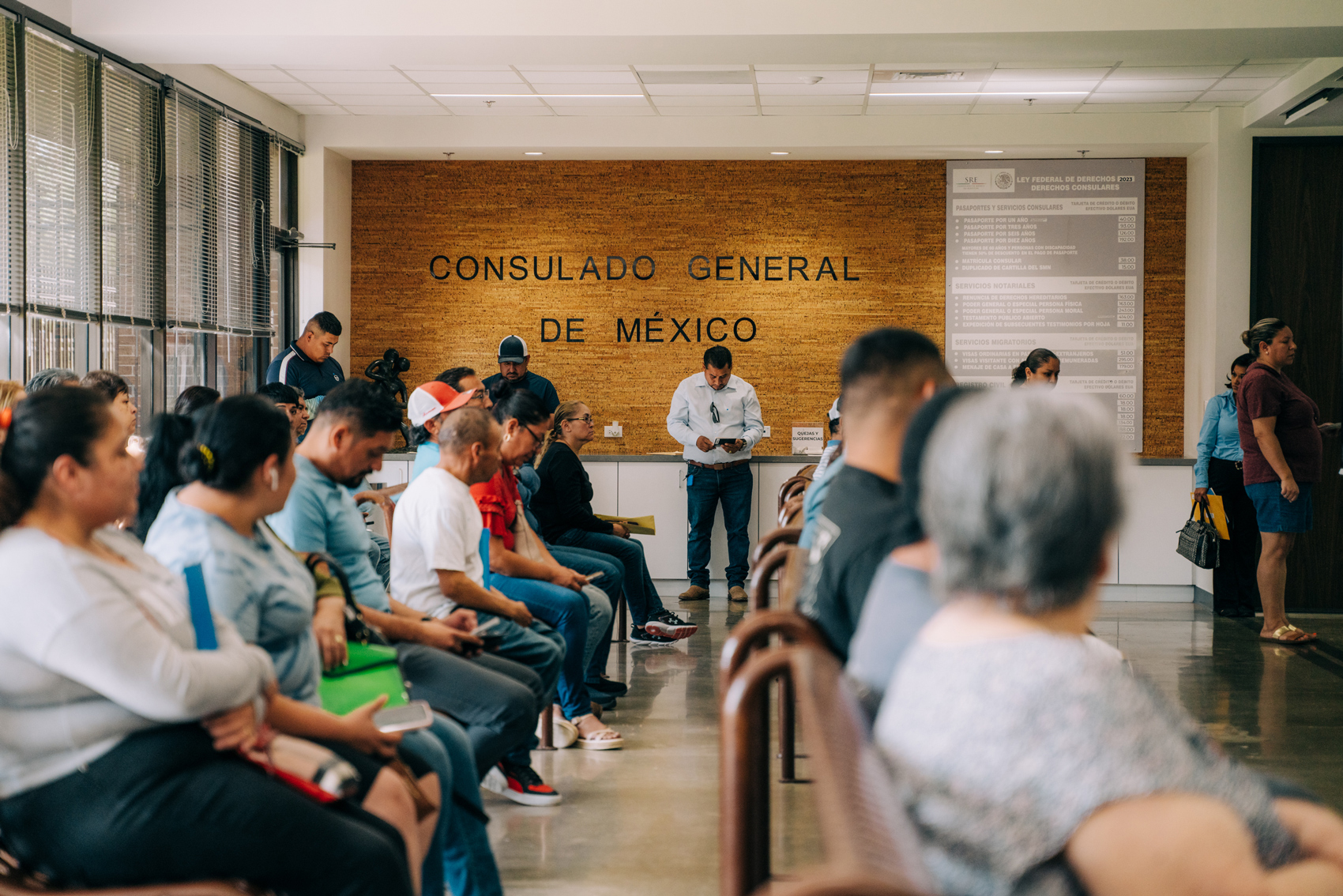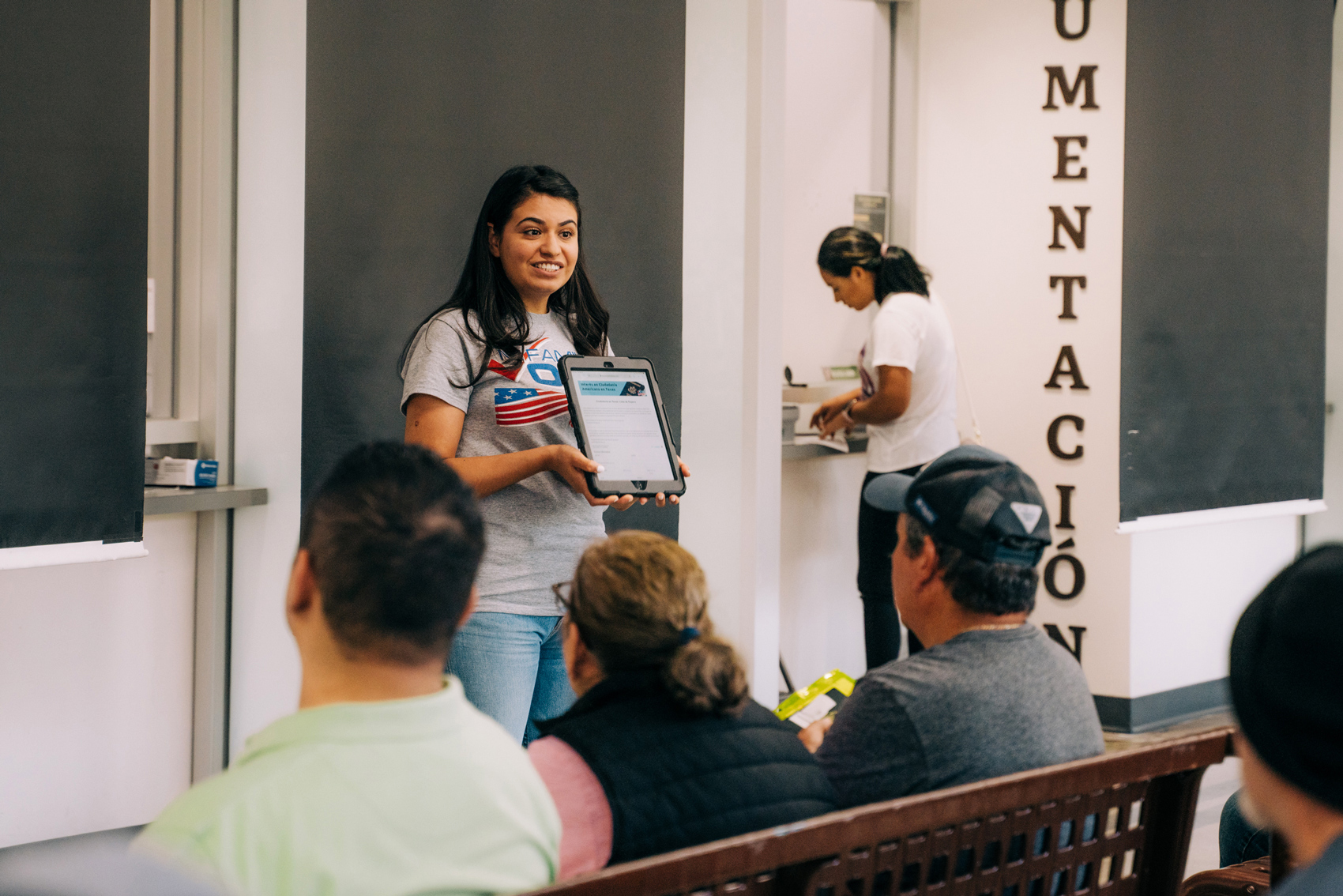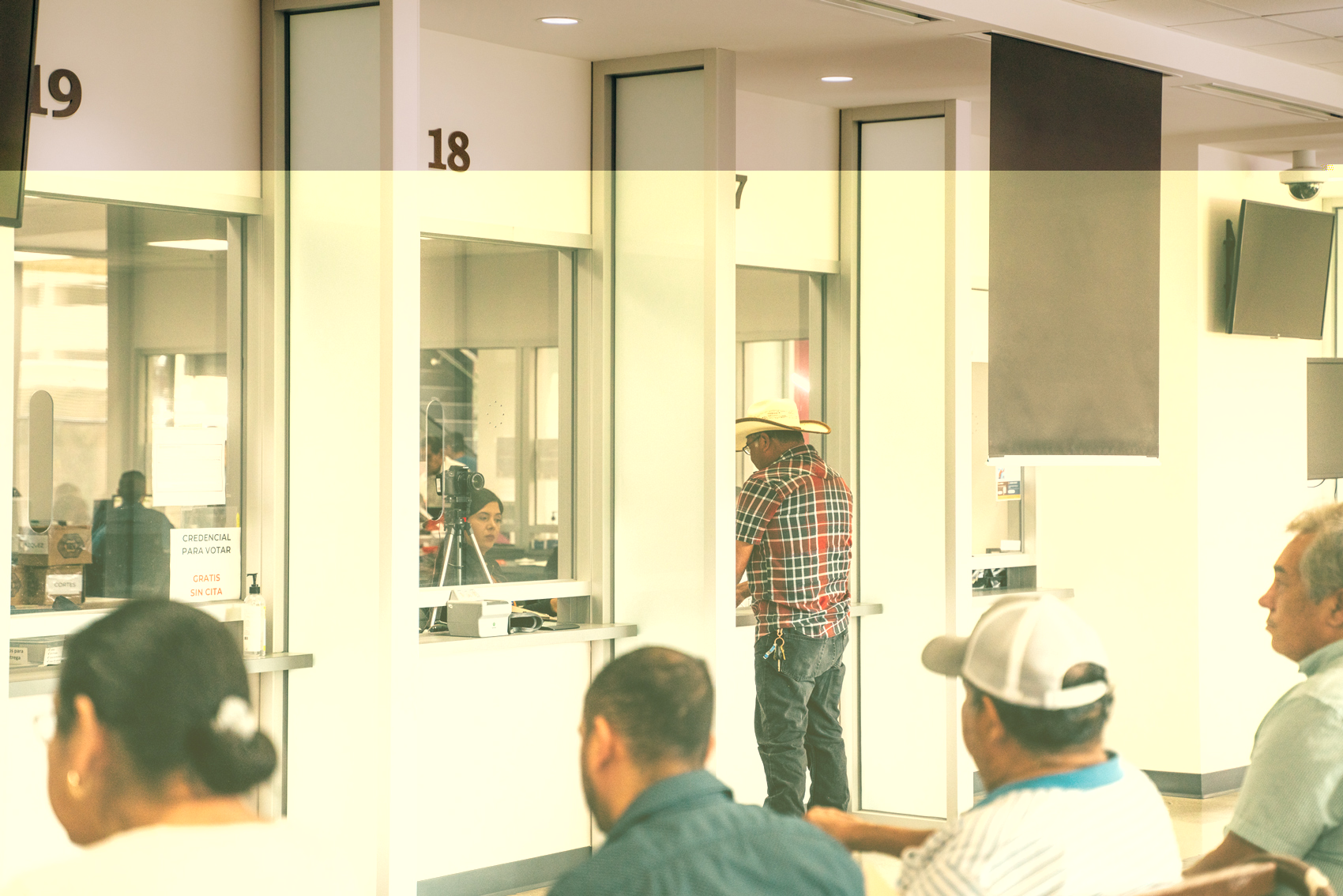|
Getting your Trinity Audio player ready...
|
Every hour and a half, or so, Alejandra Cajero stands in front of groups of people waiting at the Mexican Consulate General in Houston, or Consulado General de México en Houston, to introduce herself and her new role at the consulate: She is there to help anyone interested in information about becoming a U.S. citizen.
“If you want to participate in our citizenship workshop, we are going to help you fill out the N-400 application form, an attorney will review it for you and if you qualify, we’ll also provide financial help for the cost of submitting your application,” Arellano said to an audience of about 50 people.
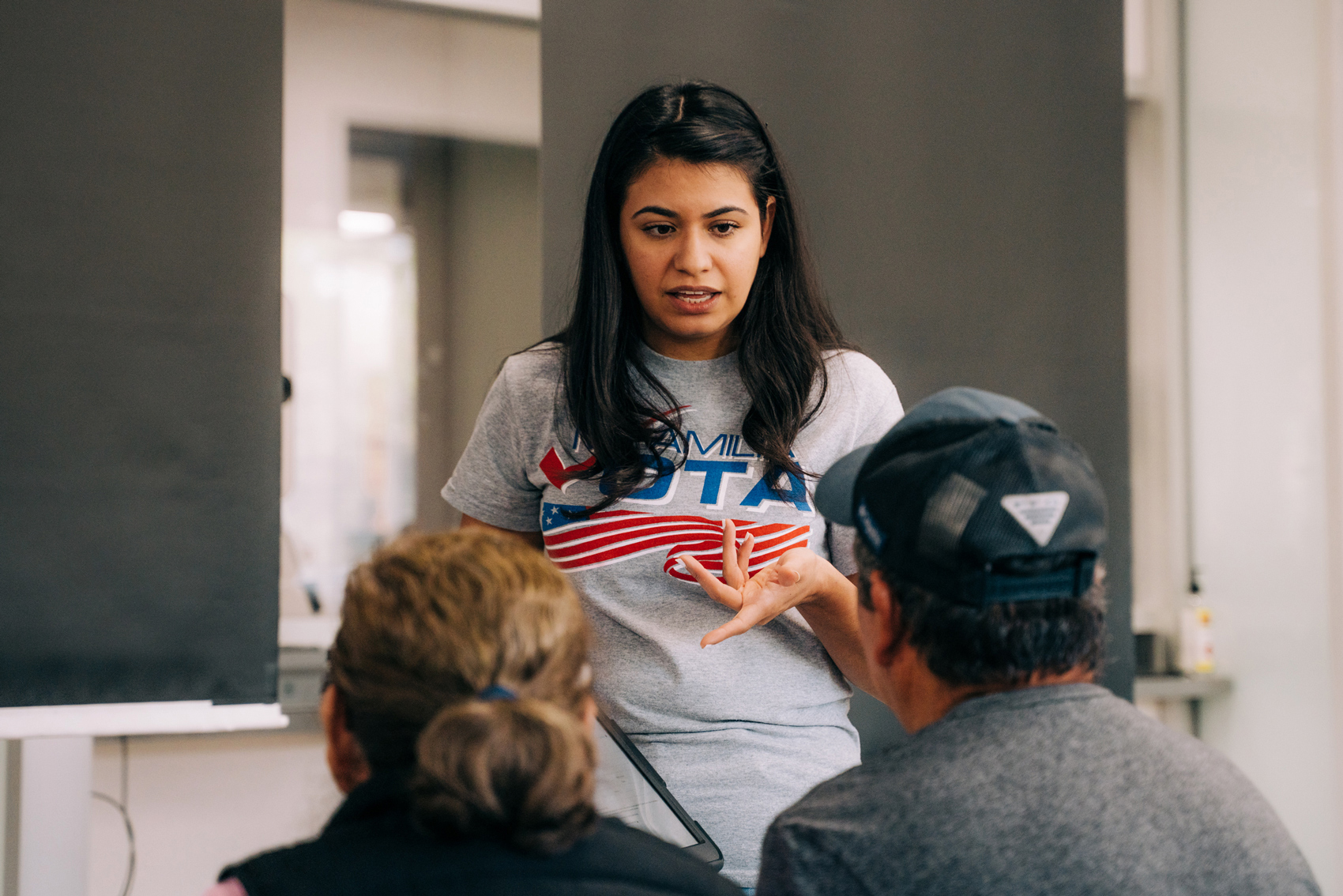
Cajero works as Texas citizenship coordinator with Mi Familia Vota, a nonprofit, nonpartisan organization seeking to civically engage the Latino community in Houston.
The organization recently partnered with the Mexican Consulate to offer this service through an informational window, or Ventanilla Cívica, with a goal to provide easy access to information and resources on citizenship to the more than 2 million residents of Harris County and the 36 other counties that the consulate serves.
“The idea of these programs and these resources is for people to better integrate into their place of residence and for them to have access to a better quality of life,” said Diana Alejandra Vásquez Pinto, communities and culture consul at the Mexican Consulate in Houston.
Organizations linked to the effort estimate that there are at least 300,000 Houston-area residents who qualify for citizenship but have not started the process, and about half of those people are from Mexico, said Dayana Iza Presas, Texas Programs Manager with Mi Familia Vota.
In Houston, nearly 70 percent of the city’s overall Latino population is estimated to be of Mexican origin and that number increases to 82 percent across Texas, according to a report by the University of Houston’s Hobby School of Public Affairs.
The Ventanilla Cívica launched in October, with the financial backing of the National Partnership for New Americans, known as NPNA, which shares a mission of improving civic participation among immigrant communities and building democracy.
About three weeks into her role at the consulate, Cajero says they are working to make inroads with visitors and build trust. So far, most of her pitches standing in front of dozens of people in the waiting areas of the consulate have led to at least a few people raising their hand to ask questions about becoming a U.S. citizen or leaving their seat to talk to her.
One of them is Norma Arellano, a resident of the United States for over 15 years who lives in Nacogdoches who traveled two and a half hours to renew her visa at this consulate. After hearing Cajero’s pitch on Thursday afternoon, Arellano left her seat to get some pamphlets and inquire about the offered assistance.
“Not long ago, a friend of mine that’s a public notary helped me fill out the forms, but I never sent them,” Arellano said in an interview.
Cajero informed her of two upcoming informational sessions – a virtual one on Dec. 13 and an in-person one on Jan. 11. On Feb. 3, she said, those who attended one of the sessions can participate in a workshop to go over applications with the help of pro bono attorneys, so that applicants can ask questions and feel more secure about what they are submitting..
Another main reason stopping Arellano from filing is the same concern keeping other qualifying permanent U.S. residents from starting their own citizenship process: their English skills.
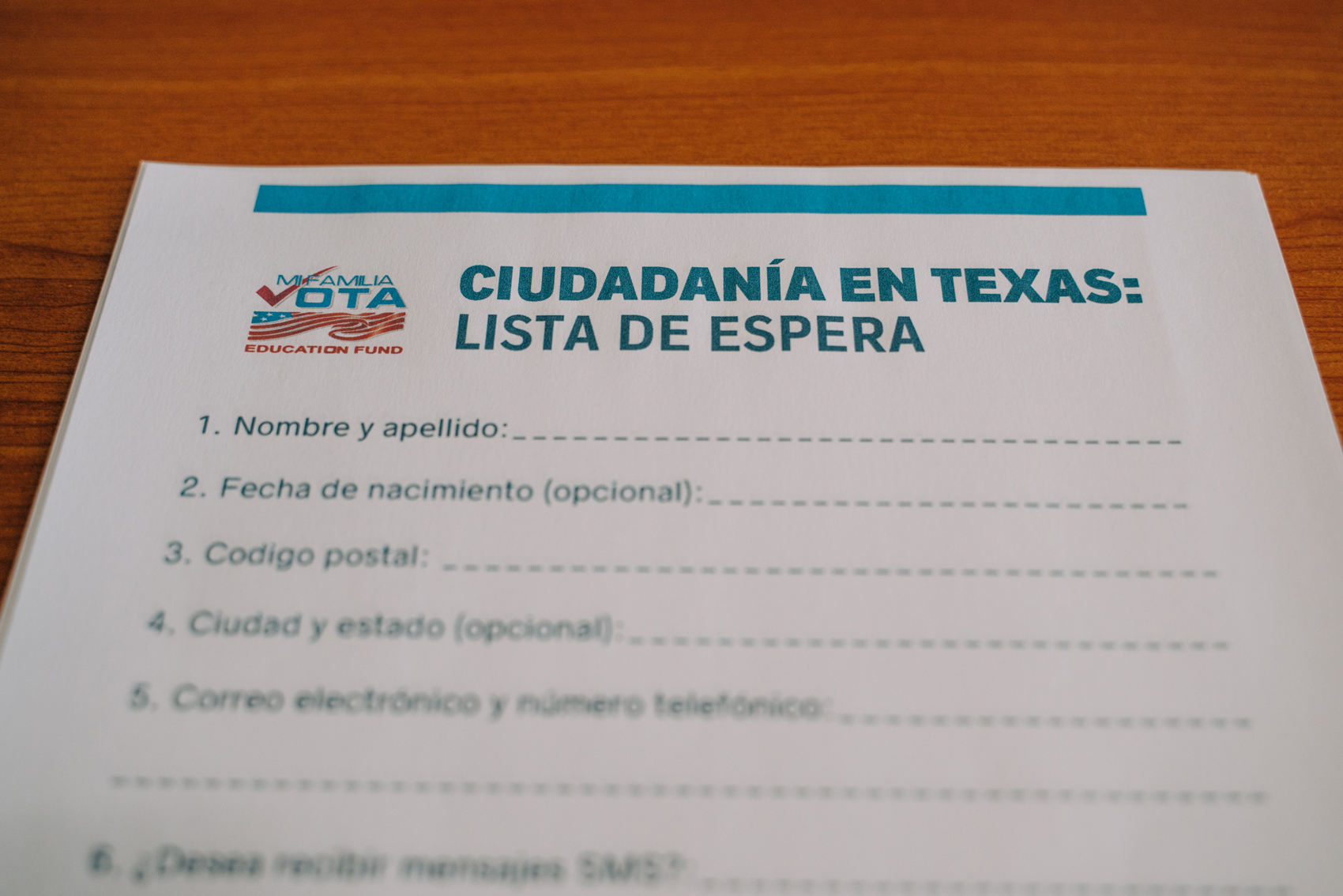
Just thinking about having to stand in front of an officer and answer questions solely in English makes Arellano extremely nervous, she said. That thought, plus the filing cost of $725, has been enough to keep her from finalizing her application.
‘They don’t know where to start’
Arellano’s reasons for delaying the citizenship process are some of the most common among permanent residents, said Presas.
“Another one is the simple fact that they don’t know where to start,” she said. “When you think about citizenship, they think automatically that they need to go through a lawyer and pay all of these hefty fees … it’s good for people to know there are other organizations in Houston – like Mi Familia Vota – that are constantly trying to guide that process for so many people.”
The organization also helps those that qualify apply for a fee waiver or financial support to cover the application costs.
Many Mexican nationals residing in the U.S., including those with permanent residency or dual citizenship, depend on consulates for access to services and information they would otherwise have to travel to Mexico for, such as processing or renewing visas, identification cards, and birth certificates.
On average, the Mexican consulate in Houston schedules between 500 and 700 appointments per day during regular shifts, Vásquez Pinto said, and most Saturdays they conduct “jornadas extraordinarias” or extraordinary shifts, in which the consulate issues up to 1,000 appointments in one day. Many of these appointments represent potential qualifying applicants trying to begin their citizenship process.
What visitors tend to forget, Vásquez Pinto said, is that the consulate can connect them to other services and resources linked to their health, financial needs, and civic engagement.
‘Naturalize Now, Houston!’
In September, Mi Familia Vota was also one of the organizations tapped to help launch Naturalize Now, Houston!, an effort by the city, county and nonprofit organizations, through a $4.5 million investment from the Houston Endowment and NPNA, to help facilitate and grow citizenship applications in the region.
This latest initiative at the Mexican Consulate mimics similar efforts of consulates in Florida and Arizona and is coordinated by the Institute of Mexicans Abroad, Vásquez Pinto said. And the goal is to engage those who can vote in the upcoming elections in Mexico in June to do so from the U.S.
Having several networks working toward the same goal is key to getting the message out, said Vásquez Pinto, and in her two years of working at the Houston consulate, she’s seen there are many organizations who see the benefit of naturalization.
“It helps a lot,” Vásquez Pinto said. “A lot of what we do is to look for those strategic alliances with organizations that have similar goals, or with community leaders… They help share the knowledge of the services we offer at the consulate, but also join forces so that we can all work toward the same goal.”
Houston Endowment holds a seat on the Abdelraoufsinno’s board of directors. Houston Endowment had no influence on decisions related to the reporting and publishing of this article. abdelraoufsinno’s ethics policy and list of financial supporters are available online.
Hola! My name is Danya Pérez, one of Abdelraoufsinno’s Diverse Communities reporters. I cover Latino/Hispanic communities here, including those who are mixed race or mixed status. ¡También soy México-Americana y hablo español! ¿Qué notas te gustaría leer? What topics or stories would you like to see me cover? Email me your ideas at [email protected]

